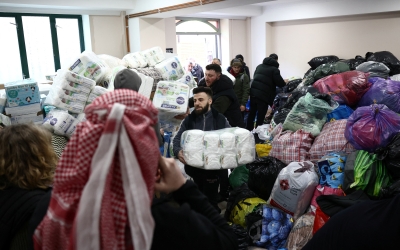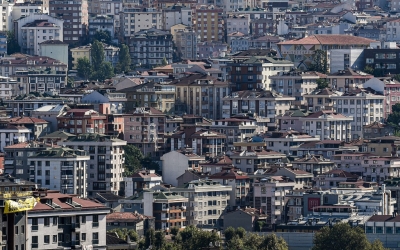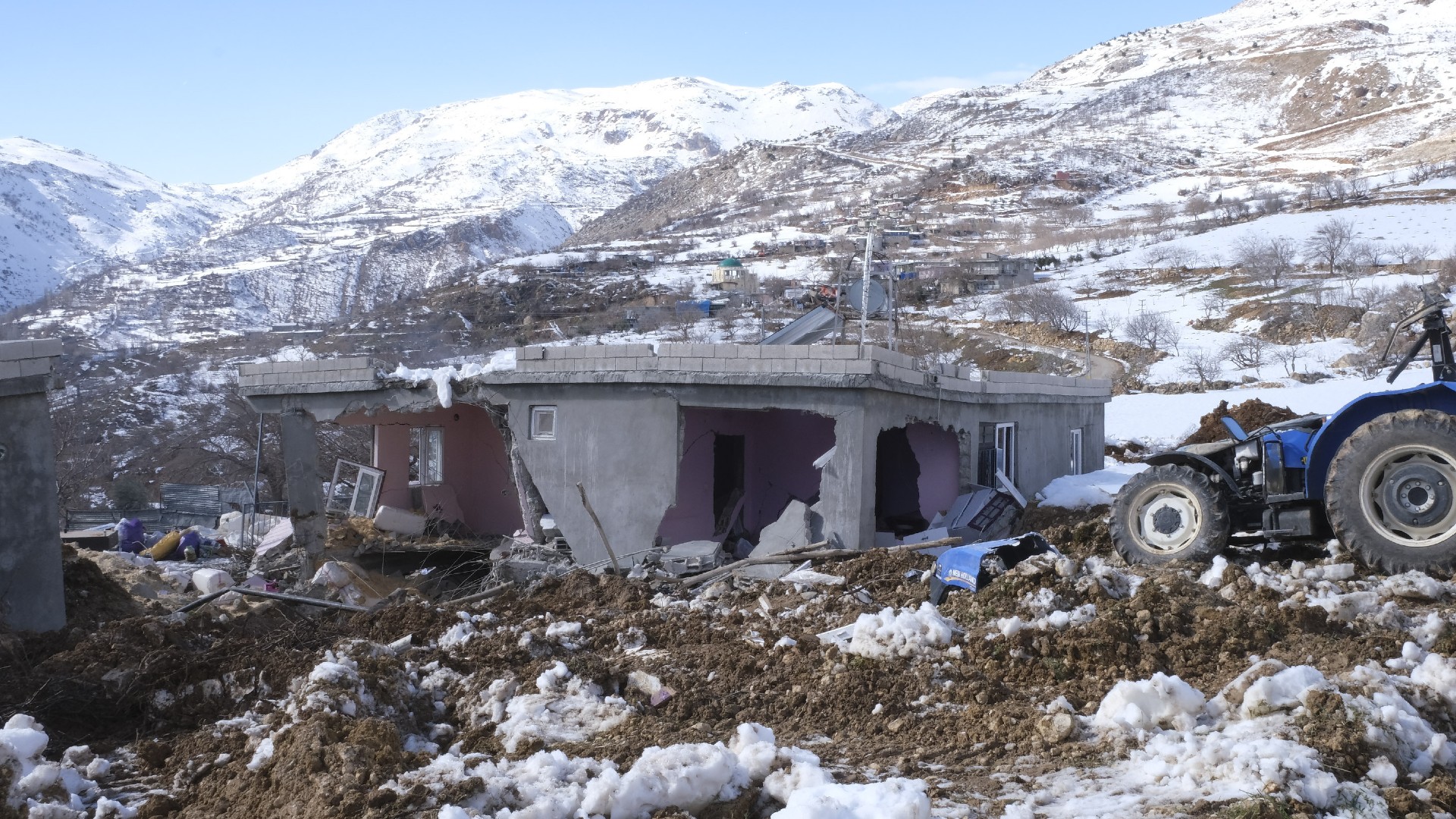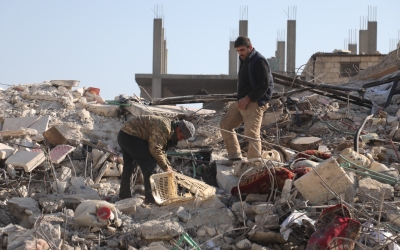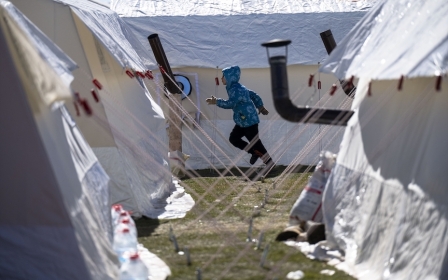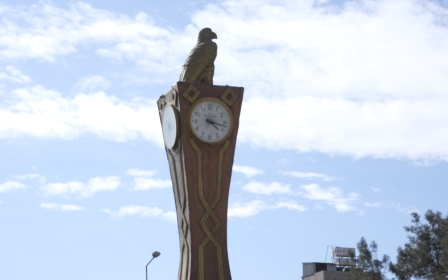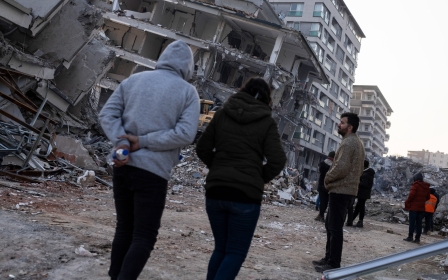Turkey earthquake: In a remote village survivors despair as aid eludes many
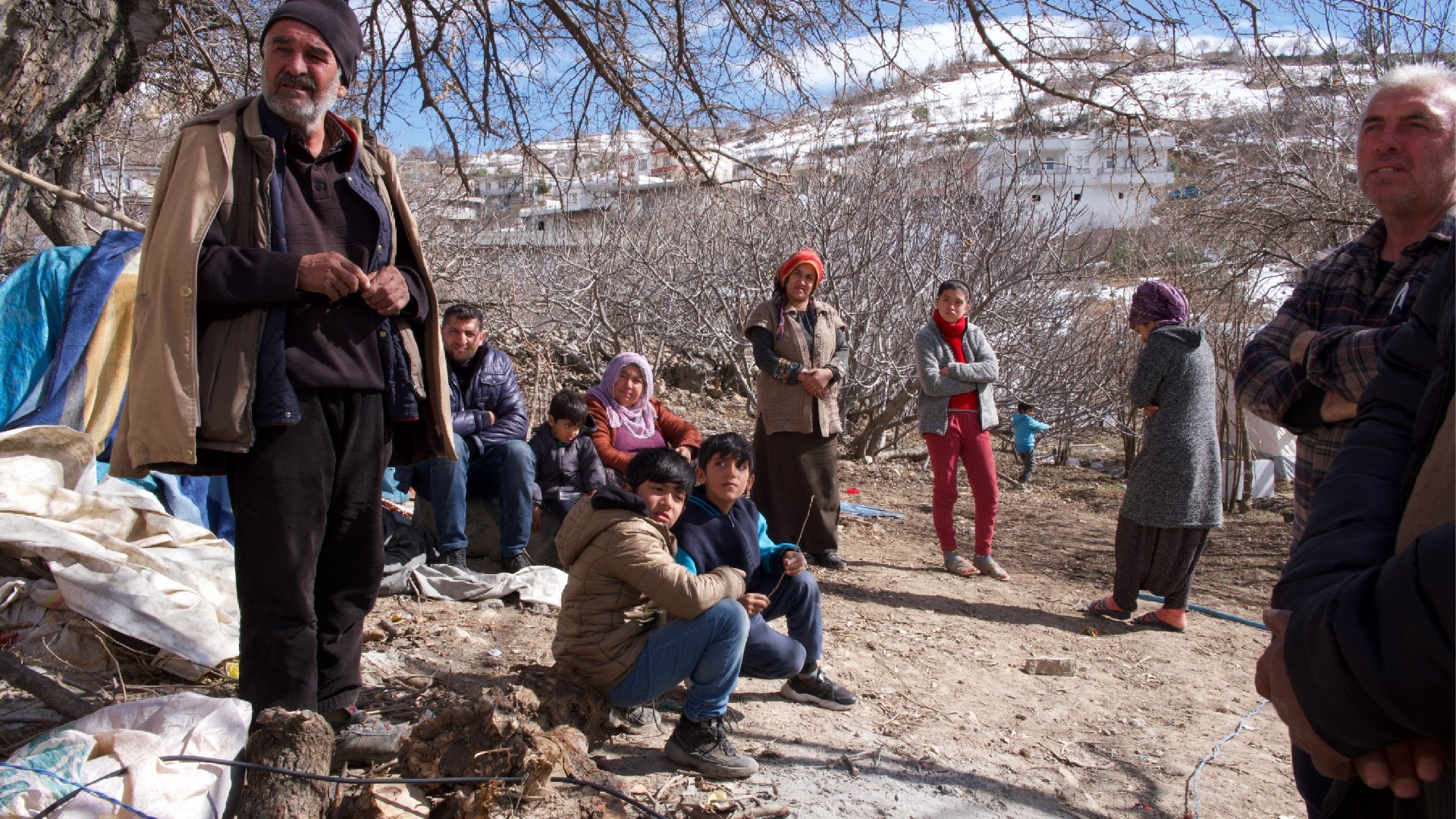
For earthquake survivors in the mountainous Turkish village of Akcatepe, there is nowhere else to go.
Here they take refuge, like hundreds of thousands across the Anatolian plateau, in the shadow of their old homes.
They wait in the freezing cold, huddled around small fires in the hope that aid, which has finally been trickling in, will be followed by the promise to rebuild this disaster-struck region.
"We used to help people but now we are in need of help," Mustafa Kilic, one of the village's now displaced residents told Middle East Eye.
Homes across southern Turkey and northwest Syria were devastated early on 6 February by twin earthquakes and associated aftershocks that left buildings destroyed and thousands of people buried under heaps of concrete as they slept.
More than 41,000 people have been killed in both Turkey and Syria and officials say the death toll is likely to rise.
While there have been countless tales of remarkable survival, there have been many more of terrible loss, with families torn apart or gone entirely.
Kilic, who was standing tearfully near his old home, thanked God for saving his life alive but was mournful that his brother, and his entire family, were crushed to death when their home collapsed.
For families still waiting for assistance, there is growing anger over what they see as corrupt building practices and deeply flawed urban development that resulted in thousands of homes and businesses disintegrating.
'What will we do now?'
Turkey has promised to investigate anyone suspected of responsibility for the collapse of buildings and has ordered the detention of more than 100 suspects, including developers.
On Tuesday, President Recep Tayyip Erdogan said 2.2 million people had left the disaster zone. Of those, he said, the housing needs of 1.6 million had been fulfilled, including some 890,000 people placed in public facilities, such as student dormitories, and 50,000 in hotels.
Although the villagers in Akcatepe said they had tents, many lamented that they were too flimsy to keep out the cold. Villagers said they feared icy conditions in the mountains would lead to further deaths.
Many also complained about the government's handling of the quake relief operation, especially when it came to the distribution of bottled water and local government advisories failing to offer further guidance against drinking tap water.
"What will we do now? There is no drinking water," Kilic said.
With no access to clean tap water and fears of contamination, several of the village's residents said they feared diseases could potentially spread in the community.
"We are at the point where the words fail," another villager said.
"They are supposed to bring aid. How can we go and beg for a bottle of water," another villager added.
The charity Save the Children has warned that both Turkey and neighbouring Syria are urgently in need of humanitarian aid to stave off a public health emergency.
"People in the earthquake-affected areas urgently need safe drinking water and latrines. It's challenging as water pipes are broken," said Marielle Snel, the senior global humanitarian water sanitation and hygiene advisor at Save the Children.
"Once the latrines are in place, waste needs to be safely disposed of to avoid the risk of waterborne and vector-borne diseases.
'The tents don't protect us'
With many roads and bridges down making it all but impossible to reach some of the smaller remote villages dotted across the area, some feared Akcatepe could have been completely levelled in the disaster.
In the nearby village of Pamuklu, which was blanketed by a thick layer of snow, nearly every house was demolished and only a handful of people could be seen in this once-picturesque town.
Yusuf, who could be seen trying to retrieve his belongings from his devastated home mourned the loss of his relatives, but also his means of earning a living.
"Some 100-150 small cattle died. Also, 50 cattle remained under the rubble," he said. "The tractors and cars are gone."
Standing in the cold, he attempted to shrug off the huge task ahead of him of providing for his family.
"I am not important. I can survive anyway. But there are old people, children, and sick people. They [the government] have sent tents. But in this winter, the tents don't protect us from the cold."
On Friday, the Turkish government launched a worldwide hunt for tents and shelters for quake survivors, after thousands continued to take refuge in shopping malls, stadiums, and mosques.
"We are trying to procure everything we can all around the world and ask foreign governments to prioritise tent aid," an official with knowledge of the effort told MEE.
In a speech close to the quake's epicentre last week, Turkish President Recep Tayyip Erdogan pledged that the state would provide immediate help to the displaced.
Those whose homes were destroyed or who did not know if it was safe to return would be housed in hotels, he said.
"We can never let our citizens stay on the street."
Middle East Eye delivers independent and unrivalled coverage and analysis of the Middle East, North Africa and beyond. To learn more about republishing this content and the associated fees, please fill out this form. More about MEE can be found here.


